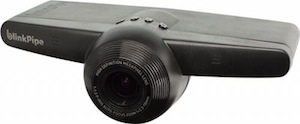Q2 PC shipments in Western Europe have been boosted by ongoing renewals in the SMB space following the end of Windows XP support, says IDC.
Commercial demand remained strong as business confidence stemming from an improving macroeconomic outlook contributed to corporate renewals. Commercial PC shipment growth in Western Europe reached 26.9% - clear confirmation that PCs remain key productivity tools in the enterprise environment.
At the same time, the rebound in consumer shipments accelerated and some markets, including southern Europe, returned to levels of business close to their capacity. Shipments in Spain, Germany, and the Netherlands took off, with sell-in up by more than 40%.
According to IDC, PC shipments in EMEA reached 21.9 million units in the second quarter of 2014 - a 10.5% increase year on year and a clear return to growth after seven quarters of consecutive decline. As in the previous quarter, Western Europe drove most of the regional growth, with shipments supported by strong enterprise renewals, which led to an overall 25% increase in the PC market. Consumer shipments also returned to growth after a severe contraction in 2013.
At the same time, Central and Eastern Europe (CEE) remained impacted by the unstable political and economic situation in Russia and by currency fluctuations; as forecast, CEE declined by 13.2%. The increase in total EMEA shipments indicates a rebound in the market but not a recovery as volumes remain below the 25 million unit mark of the peak periods in 2010 and 2012.
"The clear improvements in EMEA are positive signs for PC manufacturers," said Chrystelle Labesque, research manager, IDC EMEA Personal Computing. "However, there was still a big difference between the subregions, and especially in the consumer segment the divide between mature and emerging markets is similar to the worldwide trend.
"While some parts of the CEMA [Central and Eastern Europe, Middle East, and Africa] PC market continued to suffer from unfavourable exchange rates and a difficult political situation, Western European shipments were fueled by low-end consumer notebooks. Even if the comparison is eased by a very poor second quarter of 2013, more attractive products at the right price points encouraged more consumers to renew their devices.
"Retailers and etailers also seem more confident as new product designs and features better positioned price-wise are now generating higher sales and not only just interest. Promotional activities and vendors' preparation for the back-to-school period further supported the market. The level of inventory will have to be monitored closely as back-to-school sales progress during August and September."
In this context, Chromebooks continued to grow, but their impact is limited to several countries in Western Europe.
"The PC market in the CEMA region reported a contraction of 6% year on year," said Stefania Lorenz, associate VP, IDC CEMA. "The CEE region, in line with forecasts, recorded an annual decline of 13.2%. The region was affected by the expected contraction from the Eastern countries: Russia, Ukraine, and Kazakhstan. Russia and Ukraine suffered mostly from a slowdown in consumer demand, affected by the instability in both the economic and political situation, as well as high unemployment and a salary freeze. Kazakhstan remains affected by the dramatic currency devaluation, which is not expected to improve in the short term."
"Unlike the Eastern countries, the central region has performed well above expectations," said Nikolina Jurisic, product manager, IDC CEMA. "Countries such as Bulgaria, Hungary, Poland, and Czech Republic have reported strong double-digit growth year on year.
"PC growth was driven by both consumer and commercial segments, thanks to continual improvement in channel strategies from the players in the market, as well as the expected renewal of XP that is taking place. The MEA region reported soft 1.9% year-on-year growth for the overall PC market. The desktop market performed slightly better, thanks to the Windows XP renewals taking place across all commercial segments."

 South West Communications Group's CEO and Chairman Tony Rowe OBE has been awarded an Honorary Doctorate of Laws from University of Exeter.
South West Communications Group's CEO and Chairman Tony Rowe OBE has been awarded an Honorary Doctorate of Laws from University of Exeter. Exertis Micro-P is aiming to put resellers in the frame for incremental revenue opportunities following a link-up with Cambridge-based video conferencing manufacturer BlinkPipe which enables voice and video over one Internet connection.
Exertis Micro-P is aiming to put resellers in the frame for incremental revenue opportunities following a link-up with Cambridge-based video conferencing manufacturer BlinkPipe which enables voice and video over one Internet connection. In bold statement Dan Burgess, UC Devices Product Manager (pictured left), claimed: "BlinkPipe is a true game changer in the conferencing marketplace.
In bold statement Dan Burgess, UC Devices Product Manager (pictured left), claimed: "BlinkPipe is a true game changer in the conferencing marketplace.